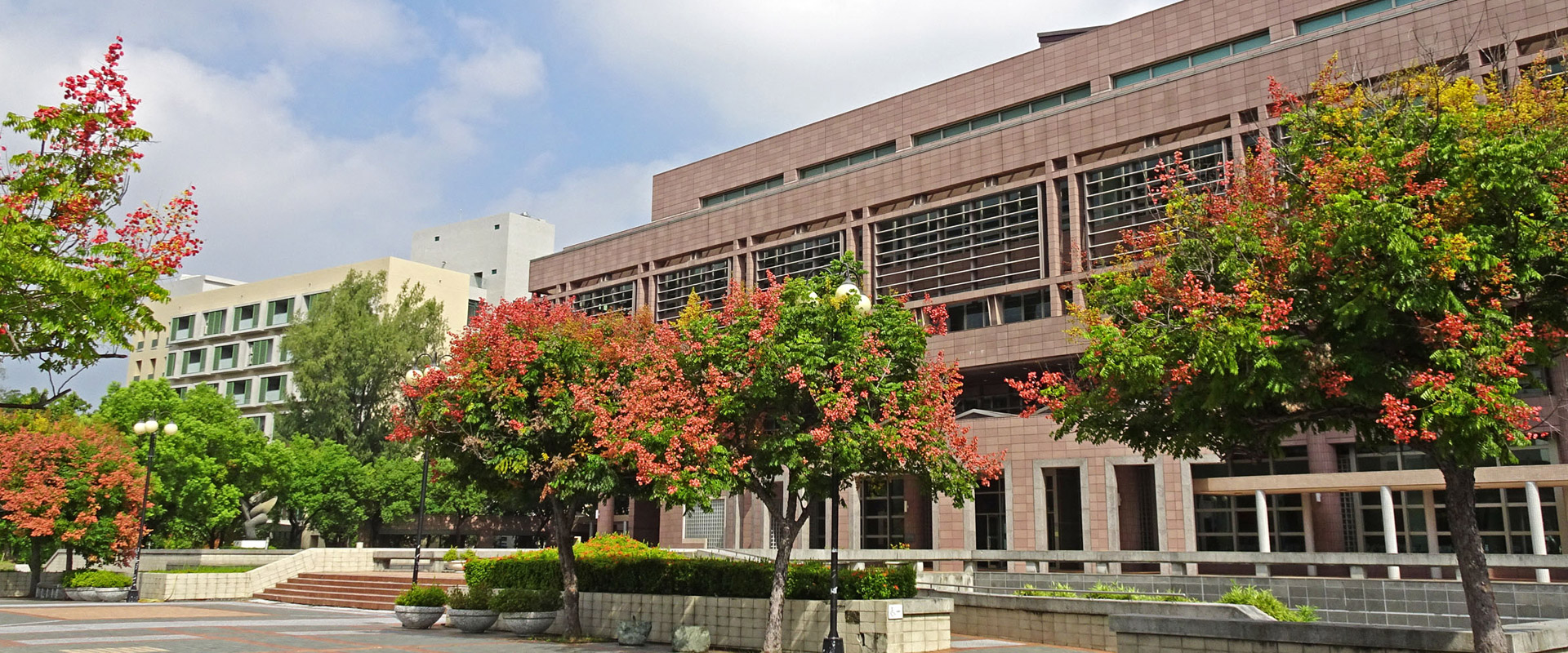Written by Amy Lin. Image credit to NCKU News Center
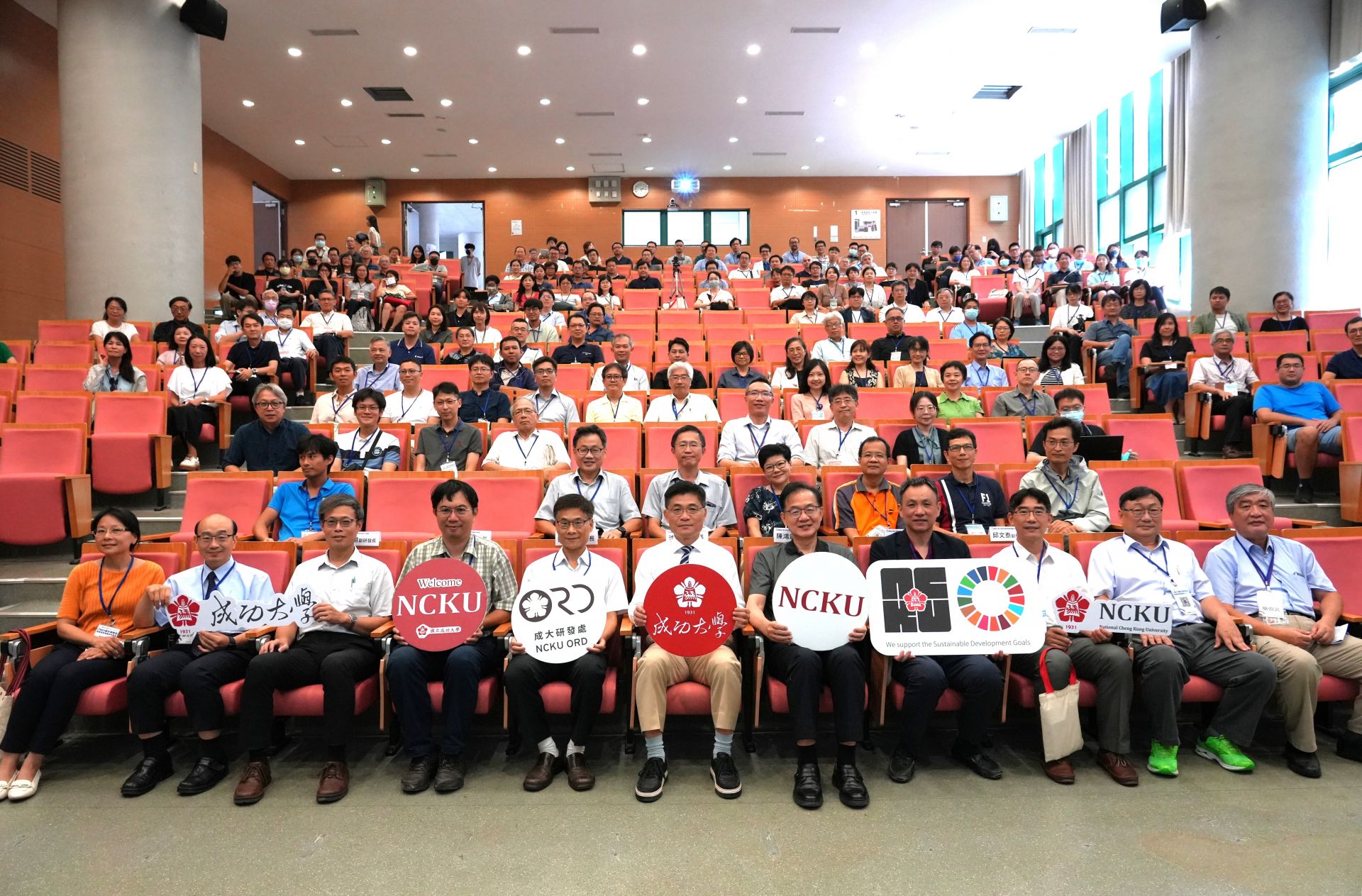

Group photo of 2024 NCKU Research Day and Interdisciplinary Research Mid-term Sharing Showcase.
To consolidate the university’s research capability, National Cheng Kung University (NCKU) has been promoting two major interdisciplinary research initiatives since 2023: the “NCKU Sustainable Integrated Interdisciplinary Project” and the “NCKU Humanities and Social Sciences Interdisciplinary Project.” These projects, scheduled for completion at the end of 2024, convened a total of 78 research teams at the “2024 NCKU Research Day and Interdisciplinary Research Mid-Term Sharing Showcase” on August 23-24. This event provided a platform for teams to share their experiences, research progress, and results. Participants expressed confidence in their achievements and optimism for the final phase, with a concluding presentation scheduled for the end of 2024.
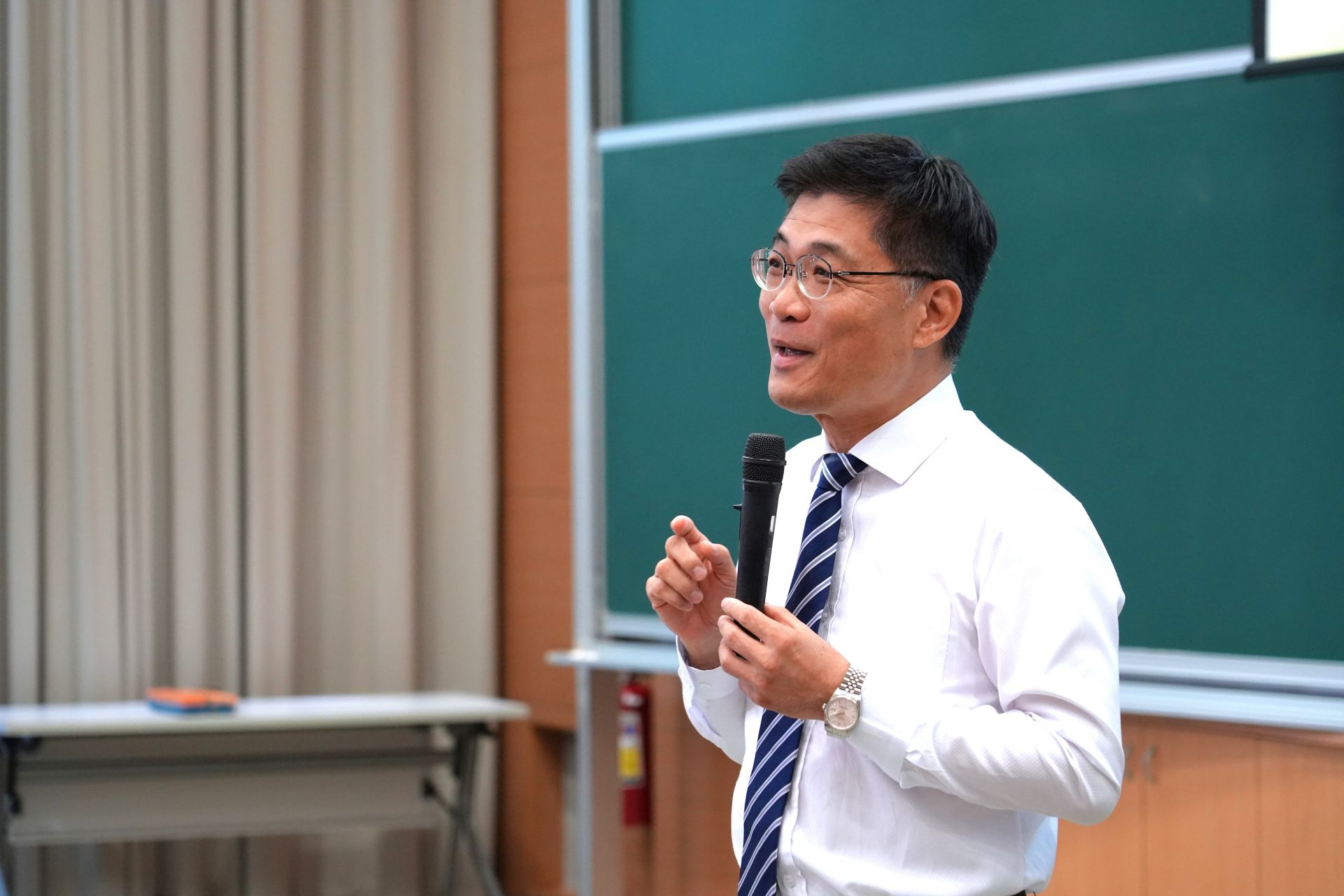
President Meng-Ru Shen emphasizes and encourages interdisciplinary integration research, aiming to inspire even greater achievements.
The mid-term sharing showcase was held in the Grand Lecture Hall of the College of Science Teaching Building on NCKU’s Cheng-Kung Campus, with around 250 faculty members and research associates in attendance. Dr. Meng-Ru Shen, President of NCKU and the driving force behind these initiatives, attended the opening ceremony, underscoring the significance of the projects. In his address, President Shen stressed that breakthroughs in academia and research are achieved through interdisciplinary collaboration. He highlighted that such collaboration not only results in exceptional outcomes but also attracts additional resources, enabling NCKU to continue making significant strides. He encouraged the faculty to seize the opportunity to learn from other teams, embrace diverse innovative ideas, and unleash greater potential for research and collaboration.
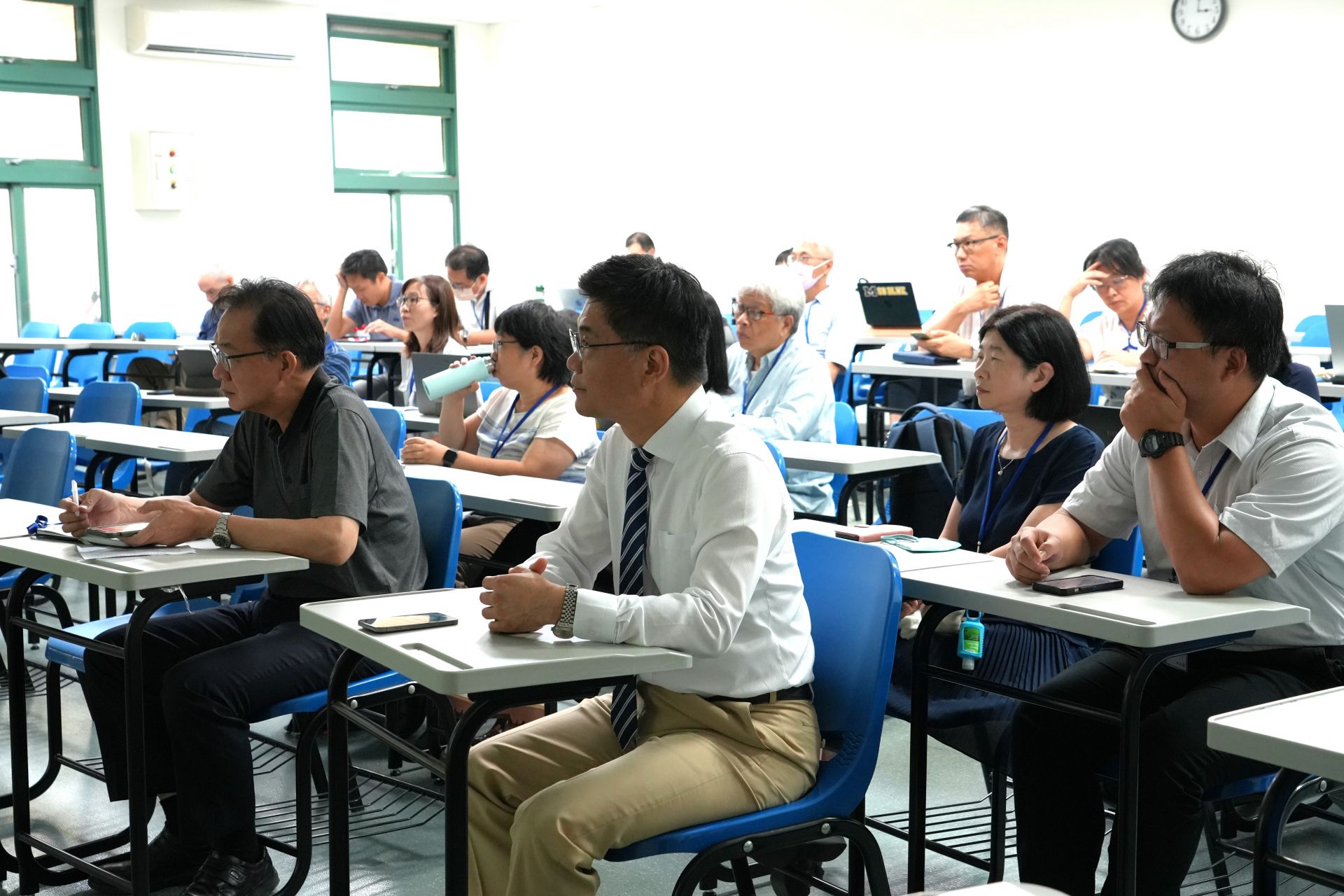
President Meng-Ru Shen attentively listens to the project presentation by the Humanities and Social Sciences group.
The conference featured six rooms, where teams from the humanities and social sciences, biomedical sciences, and science and engineering groups presented concurrently. During the two-day event, 13 teams presented in each room. After the opening ceremony, President Shen attended the humanities and social sciences presentations, including “Taiwan's Healthcare Development: Transnational Network Approaches” by Prof. Yu-Ling Huang from the Department of Medicine and “Becoming Formosa—An Archaeological Approach to Changes from Maritime Character to Localization in Prehistoric Taiwan” by Prof. Yi-Chang Liu from the Institute of Archaeology. These sessions provided insights into the university’s research directions in the humanities and helped NCKU prepare for its application to the National Science and Technology Council’s Humanities Innovation and Social Practice Project.
The humanities and social sciences teams that presented first included the “Decoding Emotions through Digital Artistry: Understanding Expression, Attribution, Cross-Cultural Comparisons, and Interventions for Amplifying Positive Emotions,” led by Prof. Pi-Chun Huang from the Department of Psychology, and the “Taiwan’s Healthcare Development: A Transnational Network Approach” team, led by Prof. Yu-Ling Huang from the Department of Medicine.
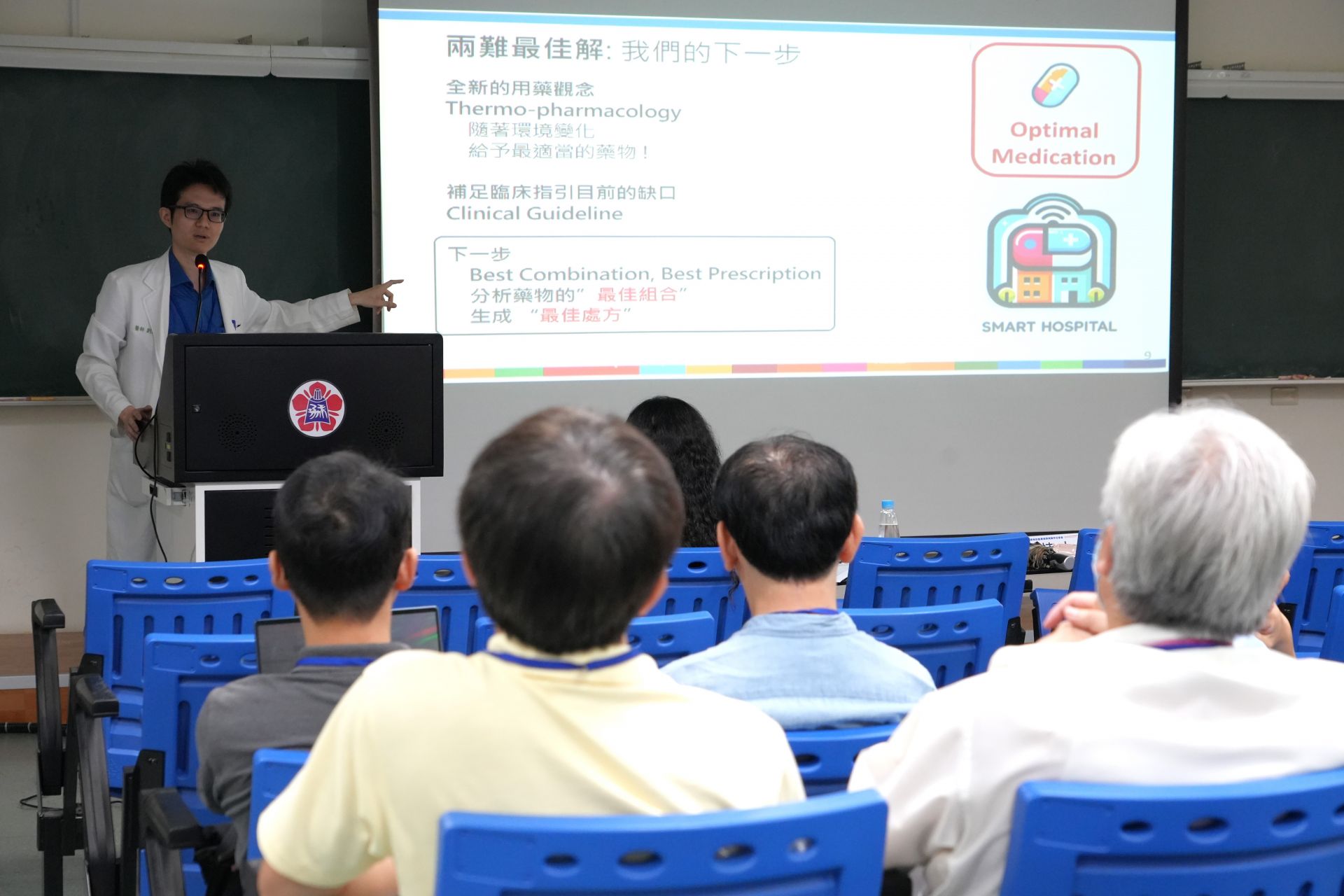
Dr. Kuan-Hung Liu presents and shares his research findings.
The first two biomedical teams to present were from the “NCKU Sustainable Integrated Interdisciplinary Project.” These included “Smart Dialysis in the Era of Climate Change: Integrating Deep Learning and Raman” led by Dr. Kuan-Hung Liu and “Intelligent Quantified Self for Health Promotion on the Spectrum from Health to Illness: A Social Design Program with a Focus on Rehabilitation and Spatial and Health Communication Systems” led by Prof. Li-Chuan Lin from the Institute of Physical Education, Health, and Leisure Studies. Dr. Liu, a nephrologist, expressed gratitude for NCKU’s interdisciplinary collaboration initiatives, which have sown the seeds of interdisciplinary research, leading to the establishment of “NCKU Smart Care.” He was also pleased to announce that the team’s work has been recognized by the NSTC, securing funding for the “Taiwan Smart Healthcare Innovation and Value-Added Promotion Project (2024-2027).”
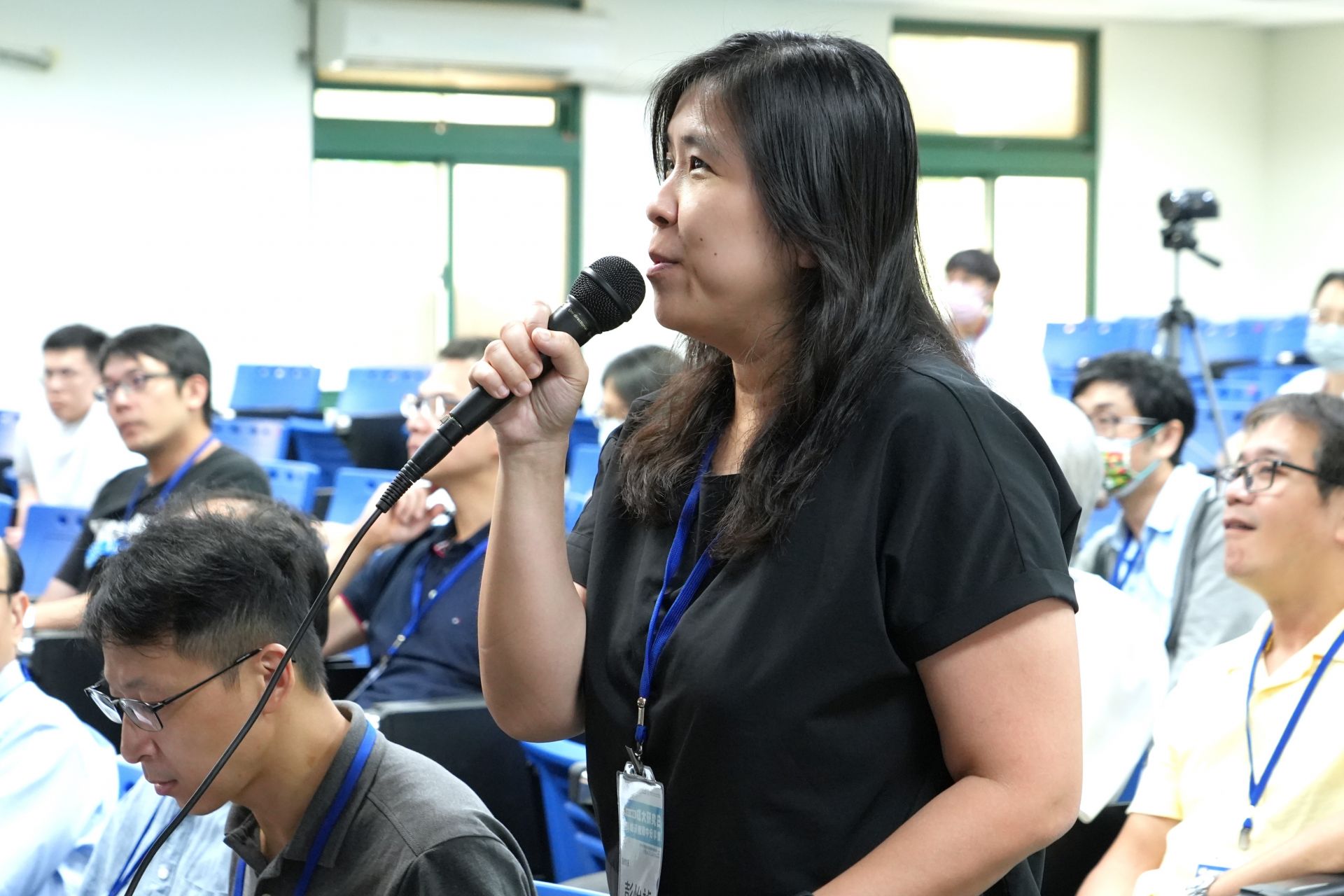
Enthusiastic questions raised during the sharing conference.
The first two presentations from the science and engineering group were also part of the “NCKU Sustainable Integrated Interdisciplinary Project.” These included “Development of Energy-Efficient Actuators, Sensors, and Controllers for Exoskeleton Robots in Precise Human Motion Assistance Applications” led by Prof. Chao-Chieh Lan from the Department of Mechanical Engineering, and “Towards a Sustainable Campus-City Relationship: A Study on the Integrated Planning and Design Strategy Paradigm of Tainan Urban District Railway Underground Project and its Surrounding Area” led by Prof. Li-Chun Chiang from the Department of Political Science.
The “NCKU Sustainable Integrated Interdisciplinary Project” was initiated by the Office of Research and Development as a university-wide effort to address the United Nations’ Sustainable Development Goals (SDGs) and national sustainability policies. It also aims to consolidate NCKU’s research capacity and promote in-depth collaboration among faculty members. The project encompasses 65 teams spanning the fields of biomedical sciences, engineering, and humanities and social sciences, with each team comprising members from at least three different colleges or centers.
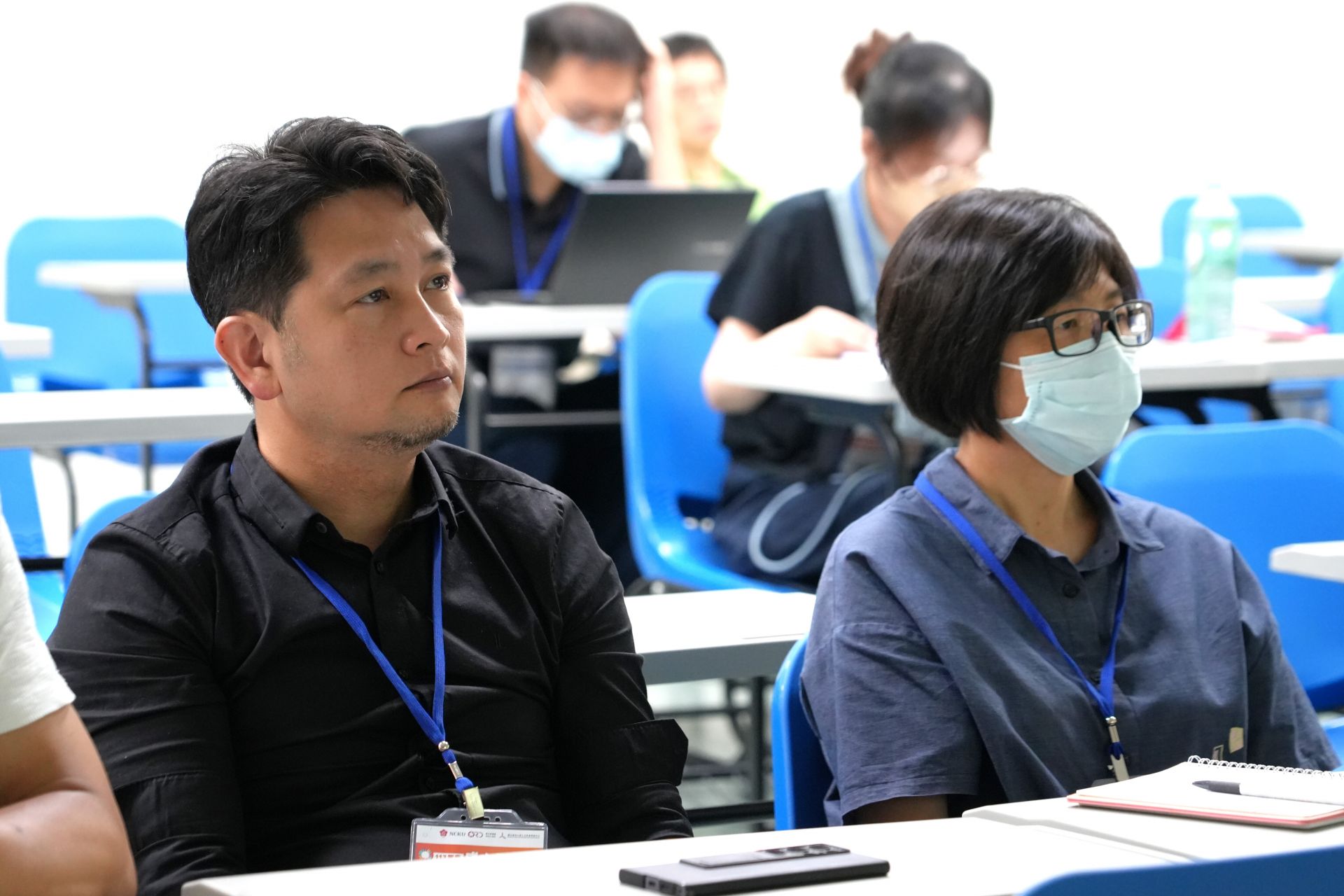
The presentations at the conference captivated the full attention of the audience.
The “NCKU Humanities and Social Sciences Interdisciplinary Project,” facilitated by the NCKU Research Center for Humanities and Social Sciences, centers around three main primary objectives: “Mind-Body Wellness,” “Health Management,” and “Warm Care.” The project comprises 13 teams and aligns with NCKU’s core objectives for medium and long-term institutional development, striking a balance between science and the humanities to continue expanding NCKU’s influence through its commitment to “Science for Society.”
Provider: NCKU News Center
Date: 2024-09-09

